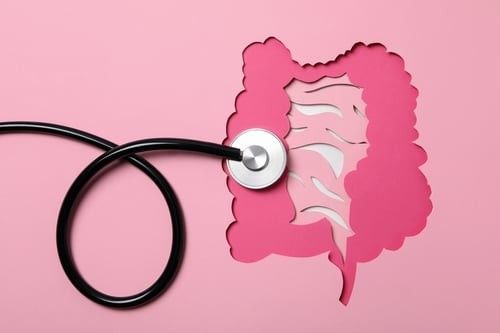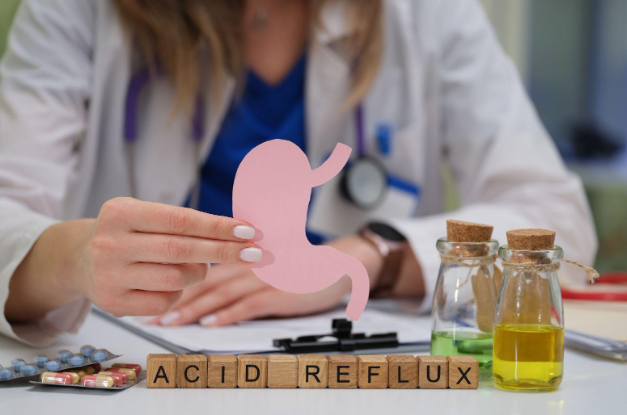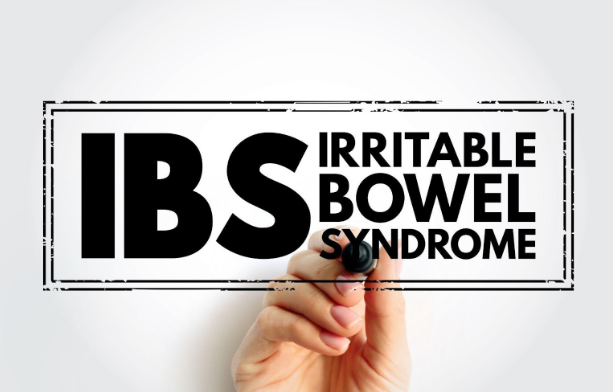What Is a Hiatal Hernia: Signs, Symptoms, and Causes

Hiatal Hernia is a condition where the upper part of the stomach bulges through hiatus (opening in the diaphragm) that separates the chest and the abdomen.
Generally, the esophagus connects with the stomach through the hiatus in the diaphragm.
There are two types of Hiatal Hernia—sliding and paraesophageal.
Sliding Hiatal Hernia
It is one of the most common hiatal hernia types. This condition occurs when the stomach and the lower part of the esophagus slide up into the chest through the diaphragm.
Paraesophageal Hiatal Hernia
It is a more dangerous type than sliding hernia and is also called as a strangulated hernia. In this condition, a part of your stomach squeezes through the hiatus to sit next to your esophagus. This compression of your stomach can cause it to lose blood supply.
These herniae can lead to severe issues depending on the size; they may be small or large. Small hiatal hernias don't cause severe problems, but you won't find them until physicians diagnose them using medical imaging procedures.
Conditions involving large hiatal hernia can be dangerous and must be treated immediately, as the condition could cause food and acid reflux back into the esophagus. This could end up causing the patient severe heartburn.
If you are persistently feeling any of these symptoms, visiting your physician for a diagnosis is the best move forward. Self-medications are not recommended, as they may give you temporary relief but delaying treatment will only cause further complications. Read on to know what symptoms yoou should be looking out for.
Symptoms of a Hiatal Hernia
Generally, a hiatal hernia is asymptomatic in nature. But when you have a large hernia, you can get the following signs and symptoms:
- Heartburn.
- Absorbing bitter or sour taste in the interior throat.
- Bloating.
- Food or liquids are regurgitated into the mouth.
- Burping
- Acid reflux—stomach acids are reversed into the esophagus.
- Difficulty swallowing
- Discomfort along with chest or abdominal pain
- Feeling full right after eating
- Breathing difficulty
- Black stools or vomiting of blood are signs of gastrointestinal bleeding.
If you or your loved ones get any of the above symptoms, it's time to consult with your doctors.
Causes
Hiatal Hernia is common in people over 50 years old or obese. Generally, they are commonly caused by increased pressure in the abdominal cavity.
Due to the abdominal pressure, your stomach bulges up through the diaphragm due to weakened muscle tissue. There is no such theory to describe the causes of hiatal hernia, but the following reasons could cause them.
- Diaphragm changes associated with aging
- Injuries caused by surgery.
- Large hiatus (that connects stomach and esophagus) by birth
- While coughing, vomiting, spitting, straining in your bowel movements, or lifting heavy weights, you exert persistent and intense pressure on the surrounding muscles.
- You can also experience hiatal hernia during pregnancy due to the extra fluid in the abdomen.
How to Diagnose a Hiatal Hernia?
Several tests help detect the presence of a hiatal hernia. The most common ones are as follows.
Barium Swallow with X-Ray Test: This test is done by getting patients to ingest a special liquid followed by an X-ray so your doctor can get a better look at your esophagus and stomach. It enhances the visibiloty of abnormalities such as ulcers and tumors. It can also determine how big the hiatal hernia is and whether or not the hernia is causing stomach twisting.
Endoscopy: An endoscope is a long, thin, flexible instrument inserted through the throat to scan the body's inner organs with the help of a camera attached to it. An endoscopy can be done to view the upper digestive system (esophagus and stomach) to diagnose the inflammation and its size.
Esophageal Manometry: Similar to endoscopy, esophageal manometry also uses a tube that is inserted into the esophagus to check the pressure. This test helps measure the esophagus muscle’s contractions when you swallow.
pH Test: Detects acid reflux symptoms and measures acid levels in the esophagus.
Gastric Emptying Studies: Observe how fast food leaves the stomach. In patients with nausea or vomiting, these results are especially important. Other reasons besides a hiatal hernia could cause nausea and vomiting.
Treatments For Hiatal Hernia
As the signs and symptoms of hiatal hernia can be pretty vague, many patients don't recognize they have one until they get severe pain or heartburn.
Depending upon the degree of severity, this condition can be managed in these three aspects.
- Diet
- Medications
- Surgery
Diet
Consuming food that will not aggrevate the condition is the goal here. Take a look at the dos and donts to get a better understanding.
Dos
- Ample amounts of water.
- Fill your meal with fiber-rich foods such as green beans, peas, carrots, broccoli, grains, rice, pasta, and crackers.
- You can consume cereals like bran and oatmeal.
- Low-fat milk and yogurt.
- Lean meat, fish, and chicken.
- Fat-free and creamy cheese.
- You can take sweet foods that aren’t saturated with sugar, but chocolates are a strict no-no.
- Weight management—lose all the unwanted weight. Hit your gym to get your weekly cardio done (under the advice of your physician)
Donts
- Avoid consuming spicy foods, chocolates, caffeine, and citrus fruits (as they’re acidic). Also, avoid foods made of onion and tomatoes, especially tomato sauce.
- It's mandatory to quit smoking and get rid of alcohol.
- It would be best if you never lay down right after eating.
- Try to downsize your meal.
- We recommend avoiding fried or fast foods, peppermint, carbonated beverages, mustard, and vinegar.
- Plan your meals 3-4 hours before bedtime and avoid snacks in bed.
- Avoid wearing tight belts or lowers that could increase the abdomen pressure.
Medication
Hiatal hernia is generally associated with heartburn and acid reflux/GERD symptoms. In most cases, the doctor would recommend the following medications you avail yourself of the following medication.
- Antacids - These pharmaceutical drugs neutralize the acid present in the stomach. Consumption of antacids could be a quick relief. Ensure to use them in allowed limits as taking them too often could cause adverse side effects like diarrhea, nausea, and kidney problems.
- H-2 receptor blockers - These are the medications that lower acid production in the stomach.
- Proton Pump Inhibitors - This blocks acid secretion and heals the esophagus. They are highly efficient compared to H-2 receptor blockers and provide relief for extended durations, thus conducing the affected esophagus tissues to heal.
Surgery
Paraesophageal or large-sized hiatal hernia requires surgery. Doctor prefers surgery as a treatment option only under the following reasons:
- Resistance to Medications (Antacids, H-2 blockers, and Proton Pump Inhibitors).
- Severe Inflammation.
- Narrowing of the esophagus (this could lead to blockage in blood supply)
- Intense and long-lasting esophageal reflux.
If esophageal reflux is left untreated, it could lead to complications like inflammation (esophagitis), esophageal ulcers, scarring, and bleeding.
The treatment goal of the surgery is to:
- Pull back the hiatal hernia into the abdomen.
- Enhance the bottom valve of the esophagus.
- Close the hole in the diaphragm muscle.
Surgery Procedures for Treating Hiatal Hernia
Generally, two types of surgeries are performed. They are:
- Fundoplication
- Laparoscopic Surgery
Fundoplication Surgery
This proccedure involves folding the fundus (upper portion of the stomach) surrounding the lower part of the esophagus. This procedure creates a permanently tight valve (sphincter); thus, stomach contents cannot move back into the esophagus (reflux).
Fundoplication surgery usually requires a large incision over the chest. These procedures of this type may be needed in some very severe cases, allowing surgery to take place with greater visibility. Also, these surgeries require a longer period to recover.
Laparoscopic Surgery
Most doctors prefer this minimally invasive procedure as it only requires a small incision. It also has low infection risks, involves less pain, and only a short recovery period in the hospital.
The surgeon does 5 to 6 small incisions over the abdomen during a laparoscopic procedure. The laparoscope (an instrument that visualizes the internal organs as a video) and other surgical equipment are inserted through these small incisions.
With the help of other surgical equipment, the surgeon wraps the fundus around the esophagus, and the sphincter is tightened.
Key Takeaways
- A hiatal hernia or hiatus hernia is when the stomach bulges between the chest and abdomen from an opening in the diaphragm. This opening is known as a hiatus.
- They are asymptomatic and have the same signs of heartburn or GERD when they reach a severe stage.
- Early-stage or smaller-size hiatal hernia can be managed through diet, habitual changes, and over-the-counter medications. When the size is large, the patient should undergo surgery.
- Laparoscopic and open-fundoplication surgeries are the types of surgeries performed by doctors. Generally, laparoscopic surgeries are preferred for reasons stated above.
If you or a loved one is experiencing any of these symptoms, please don’t hesitate to get in touch with the professionals at
Northlake Gastroentrology. We provide state-of-the-art care to all our patients and ensure that your road to recovery is smooth and worry-free.
Request an appointment today!
More Blogs












